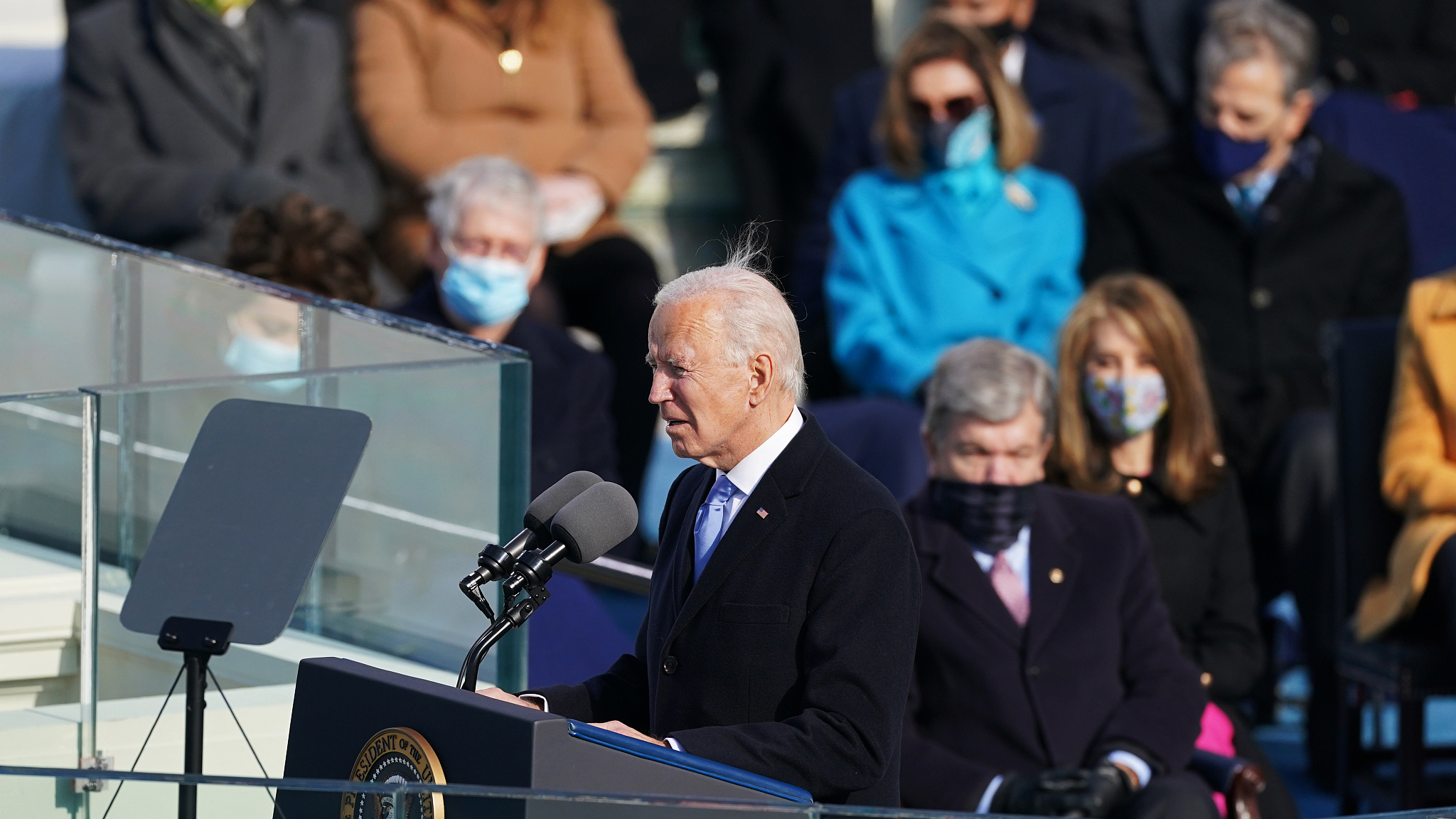
Editor's note: CGTN's First Voice provides instant commentary on breaking stories. The daily column clarifies emerging issues and better defines the news agenda, offering a Chinese perspective on the latest global events.
The one-China principle has been the foundation of the China-U.S. relationship. The Trump administration, through its various rhetoric and policy changes, has broken many long-held protocols that govern the U.S.' actions regarding Taiwan.
As it surveys the shattered geopolitical wreckage left by the Trump administration, the new Biden administration is testing how far it can push China in the South China Sea and the Taiwan Straits. On Saturday, Washington sent an aircraft carrier group to test the uncertain waters.
The geopolitical situation has certainly changed since Biden's days as U.S. vice president, owing to the last administration crossing a number of red lines. Protesters in Hong Kong waved American flags and asked for former U.S. President Trump to intervene on their behalf.
On his way out, former Secretary of State Mike Pompeo laid a number of landmines for the future of China-U.S. relations. He sought to normalize official political contact between the U.S. and authorities in Taiwan, violating the fundamental agreement that forms the basis of ties between China and the U.S. – the one-China policy. Building the one-China policy was a diplomatic high-wire act that required goodwill from all sides, with an eye to peaceful and prosperous future for Chinese compatriots on both sides of the Taiwan Straits.
Throughout his long career in Washington, Biden has supported America's one-China policy and the delicate status quo across the Taiwan Straits, believing the framework offers the best chance for a peaceful unification. In 2001, Biden specifically warned the authorities in Taiwan, saying, "Don't go declaring independence, because we are not willing to go to war over your unilateral declaration of independence."

Joe Biden delivers his inaugural speech at the West Front of the U.S. Capitol in Washington, D.C., January 20, 2021. /VCG
Joe Biden delivers his inaugural speech at the West Front of the U.S. Capitol in Washington, D.C., January 20, 2021. /VCG
Now, the Biden administration is making noise about making sure an increasingly rebellious Taiwan can defend itself. They have backed this talk with the movement of the USS Theodore Roosevelt strike group near Taiwan on Saturday.
The threat of military action against China would certainly be a political boost for Biden at home. After four years of demonization by the Trump administration, a shooting war against China would undoubtedly be extremely popular among the disappointed "America First" crowd – at first.
But the U.S. should be under no illusion that using military force against China would somehow yield a positive response.
The U.S. might be able to bully smaller countries, but China is much larger, much more capable of defending itself and will prove to be a tough opponent to any country that infringes on its core interests.
On Saturday, China responded to the U.S. military provocation with resolve, activating air force assets powerful enough to counter the naval threat, showing China has both the political will and military capability to prevail in a cross-Straits conflict. As China has shown in Hong Kong, it will not countenance threats to its territorial integrity.
No one should question this red line. The one-China policy adopted by the U.S. and other major nations was built on the skill and goodwill of generations of diplomats, including Biden. Peace across the Taiwan Straits has enabled decades of prosperity for Chinese people on both shores. This can continue as long as all sides continue with their pledge to honor the one-China policy.
China has made clear that it must be – and will be – reunified by all means necessary. The use of military force is not off the table. Anyone entangled will pay a high cost, however unfortunate that may be.
(If you want to contribute and have specific expertise, please contact us at opinions@cgtn.com.)

